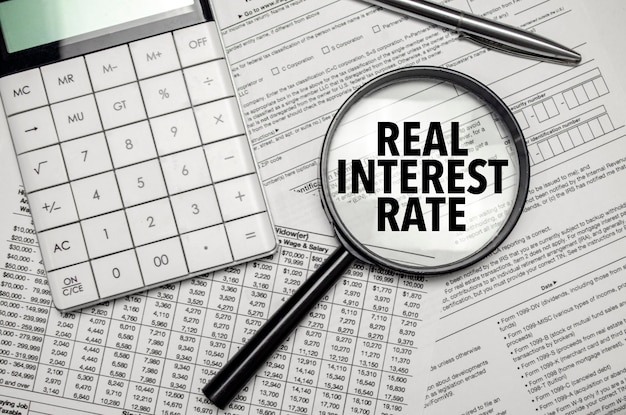5 Essential Questions to Ask Before Signing a Car Loan in 2025

Before signing a car loan in 2025, it’s crucial to understand interest rates, loan terms, repayment options, potential fees, and the total cost of the loan to make an informed financial decision.
Securing a car loan is a significant financial undertaking, and as we move closer to 2025, it’s more important than ever to be well-informed. Before you sign on the dotted line, asking the right questions can save you money and prevent future headaches. This article will guide you through 5 essential questions to ask before signing a car loan in 2025, ensuring you make a sound financial decision.
What is the Interest Rate and is it Fixed or Variable?
Understanding the interest rate is paramount when taking out a car loan. This figure directly impacts the total amount you’ll pay over the life of the loan, making it a critical factor in your decision-making process.
First, ascertain the exact interest rate being offered. Don’t hesitate to compare rates from multiple lenders, including banks, credit unions, and online lenders, to ensure you’re getting the best possible deal. Even a small difference in the interest rate can translate to significant savings over the loan term.
Fixed vs. Variable Interest Rates
Next, determine whether the interest rate is fixed or variable.
- Fixed Interest Rate: A fixed interest rate remains constant throughout the loan term, providing predictable monthly payments and making it easier to budget.
- Variable Interest Rate: A variable interest rate can fluctuate based on market conditions, potentially leading to higher or lower monthly payments. While a variable rate might start lower, it carries the risk of increasing over time.
Carefully consider your risk tolerance and financial stability when choosing between a fixed and variable interest rate. If you prefer predictability and want to avoid potential payment increases, a fixed rate is generally the safer option.
In conclusion, understanding the interest rate – whether it’s fixed or variable – is a critical step in securing a car loan. By comparing rates and carefully considering your options, you can make a financially sound decision that aligns with your long-term goals.

What is the Total Loan Term and How Will it Affect Payments?
The loan term, or the length of time you have to repay the loan, significantly impacts your monthly payments and the total interest you’ll pay. Understanding this aspect is crucial for budgeting and long-term financial planning.
Shorter loan terms typically result in higher monthly payments but lower overall interest paid. Conversely, longer loan terms lead to lower monthly payments but higher total interest paid over the life of the loan.
Weighing the Pros and Cons
Consider your budget and financial goals when deciding on a loan term.
- Shorter Loan Term: Ideal if you can afford higher monthly payments and want to minimize the total interest paid. It also allows you to build equity in your car faster.
- Longer Loan Term: Suitable if you need lower monthly payments to fit your budget, but be prepared to pay more interest in the long run.
Use online car loan calculators to simulate different loan terms and see how they affect your monthly payments and total interest paid. This can help you find a balance that works for your financial situation.
Negotiating the Loan Term
Don’t be afraid to negotiate the loan term with the lender. Sometimes, they may be willing to adjust the term to better fit your budget or financial goals. This can be especially beneficial if you’re trying to balance affordability with minimizing interest payments.
Ultimately, choosing the right loan term is about finding a balance between monthly affordability and long-term cost. By carefully considering your options and negotiating with the lender, you can make a decision that aligns with your financial goals.
What are the Repayment Options and Are There Any Penalties?
Understanding your repayment options and potential penalties is crucial for managing your car loan effectively. Knowing how you can repay the loan and what fees you might incur can save you money and prevent unnecessary stress.
Explore the various repayment options offered by the lender. Some lenders may offer flexible payment schedules, such as bi-weekly payments, which can help you pay off the loan faster and save on interest.
Available Repayment Methods
Common repayment methods include:
- Online Payments: Convenient and often allow you to set up automatic payments.
- Mail-in Payments: Traditional option, but make sure to allow enough time for the payment to be received and processed.
- Phone Payments: May incur a fee, but useful for making a quick payment.
Check if there are any penalties for early repayment or prepayment. Some lenders may charge a fee if you pay off the loan before the agreed-upon term. Understanding these penalties can help you avoid unexpected costs if you decide to pay off the loan early.
Late Payment Penalties
Also, inquire about late payment penalties. Knowing the grace period and the amount of the late fee can help you avoid unnecessary charges if you happen to miss a payment. Setting up automatic payments can help ensure you never miss a due date.

What Fees are Included in the Car Loan?
Car loans often come with various fees that can add to the overall cost. Understanding these fees is essential for budgeting accurately and avoiding surprises.
In addition to the interest rate, there may be other fees associated with the car loan, such as origination fees, documentation fees, and early payment penalties.
Common Car Loan Fees
Some fees to watch out for:
- Origination Fees: Charged by the lender for processing the loan application.
- Documentation Fees: Cover the cost of preparing the loan documents.
- Prepayment Penalties: Charged if you pay off the loan early.
Always ask for a complete breakdown of all fees associated with the loan. This will give you a clear picture of the total cost of borrowing. Compare the fees charged by different lenders to ensure you’re getting the best deal.
Some lenders may be willing to negotiate or waive certain fees, so don’t hesitate to ask. Reducing or eliminating fees can save you a significant amount of money over the life of the loan.
A little diligence in understanding and negotiating fees can lead to substantial savings, ensuring your car loan remains affordable and manageable.
What is the Total Cost of the Loan, Including Interest and Fees?
Determining the total cost of the loan, including all interest and fees, is the ultimate question to ask before signing a car loan. This figure represents the true cost of borrowing and should be your primary focus when comparing loan offers.
Calculate the total cost of the loan by adding up all the monthly payments, interest, and fees. This will give you a clear understanding of how much you’ll pay over the life of the loan.
Comparing Loan Offers
When comparing loan offers from different lenders, focus on the total cost rather than just the monthly payment. A lower monthly payment may seem attractive, but it could mean you’re paying more in interest and fees over the long term.
- Use a Loan Calculator: Online calculators can help you determine the total cost of the loan based on the interest rate, loan term, and fees.
- Review the Loan Agreement: Carefully read the loan agreement to ensure all fees and charges are clearly disclosed.
Consider the long-term implications of the loan. Can you comfortably afford the monthly payments and the total cost of the loan? Make sure the loan fits within your budget and financial goals. Remember, the goal is to secure a loan that allows you to own a car without putting undue strain on your finances.
By focusing on the total cost, you ensure you’re making a financially sound decision and avoiding potential pitfalls.
| Key Question | Brief Description |
|---|---|
| 💰 Interest Rate | Understand the rate and whether it’s fixed or variable to predict costs. |
| 📅 Loan Term | Assess how the length of the loan affects your monthly payments and total interest. |
| 💲 Repayment Options | Know your repayment methods and any penalties for early or late payments. |
| 🧾 All Included Fees | Be aware of all fees to avoid surprises and accurately budget for the loan. |
Frequently Asked Questions
▼
Generally, a credit score of 700 or higher is considered good, increasing your chances of securing a lower interest rate. However, some lenders offer loans to borrowers with lower scores, though potentially at higher rates.
▼
Improve your credit score, shop around for the best rates, consider a shorter loan term, and make a larger down payment. You might also consider joining a credit union for potentially lower rates.
▼
End of the month, end of the quarter, or end of the year are often good times to buy, as dealerships are trying to meet quotas. Also, look for manufacturer incentives and special financing offers.
▼
Yes, refinancing is an option if interest rates have dropped or your credit score has improved since you initially took out the loan. This could potentially lower your monthly payments or overall interest paid.
▼
Consider the total cost of the loan, including interest and fees, the loan term, and the impact on your overall financial situation. Also, factor in insurance, maintenance, and fuel costs associated with owning the car.
Conclusion
In conclusion, by asking these 5 essential questions to ask before signing a car loan in 2025, prospective car buyers can make informed decisions that align with their financial goals and prevent potential financial pitfalls. Understanding interest rates, loan terms, repayment options, fees, and the total cost of the loan is crucial for securing a car loan that is both affordable and manageable.





